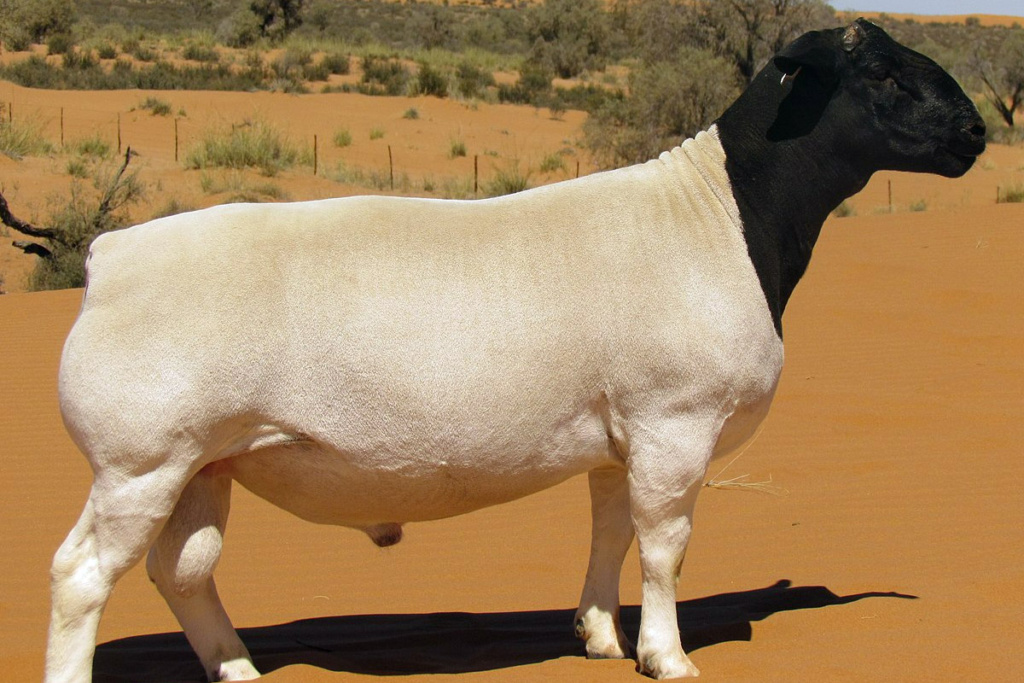
Origin:
The Dorper sheep breed was developed in Namibia and South Africa in the 1930s.
Physical Characteristics:
Dorper sheep are typically white or white with black heads and have a short, dense coat.
Meat Quality:
Dorper sheep are primarily bred for meat production. Their meat is flavorful and of high quality, making them a preferred choice among meat producers.
Milk Yield:
Due to their focus on meat production, Dorper sheep may have lower milk yields compared to some other dairy breeds.
Fertility and Lambing Rates:
Dorper sheep are highly fertile and often exhibit ease in lambing.
Adaptation Ability:
Dorper sheep are known for their ability to adapt to various climates and environmental conditions, making them popular in diverse regions.
Feeding and Care:
Dorper sheep are generally hardy and possess robust constitutions. Healthy nutrition and regular veterinary care are important for efficient breeding.
Genetic Significance:
The Dorper breed holds genetic importance due to its meat quality and fertility capabilities.
Lifespan:
Under proper care, Dorper sheep typically live between 8 to 12 years.
Usage Areas:
Dorper sheep are primarily raised for meat production.
Technical Data:
- Body Weight: 60-120 kg (Adult Ewe), 80-150 kg (Adult Ram)
- Fertility: High
- Meat Quality: High
The Dorper sheep breed is renowned for its high meat quality and fertility abilities. They are particularly raised for meat production and are a favored choice in various regions.
